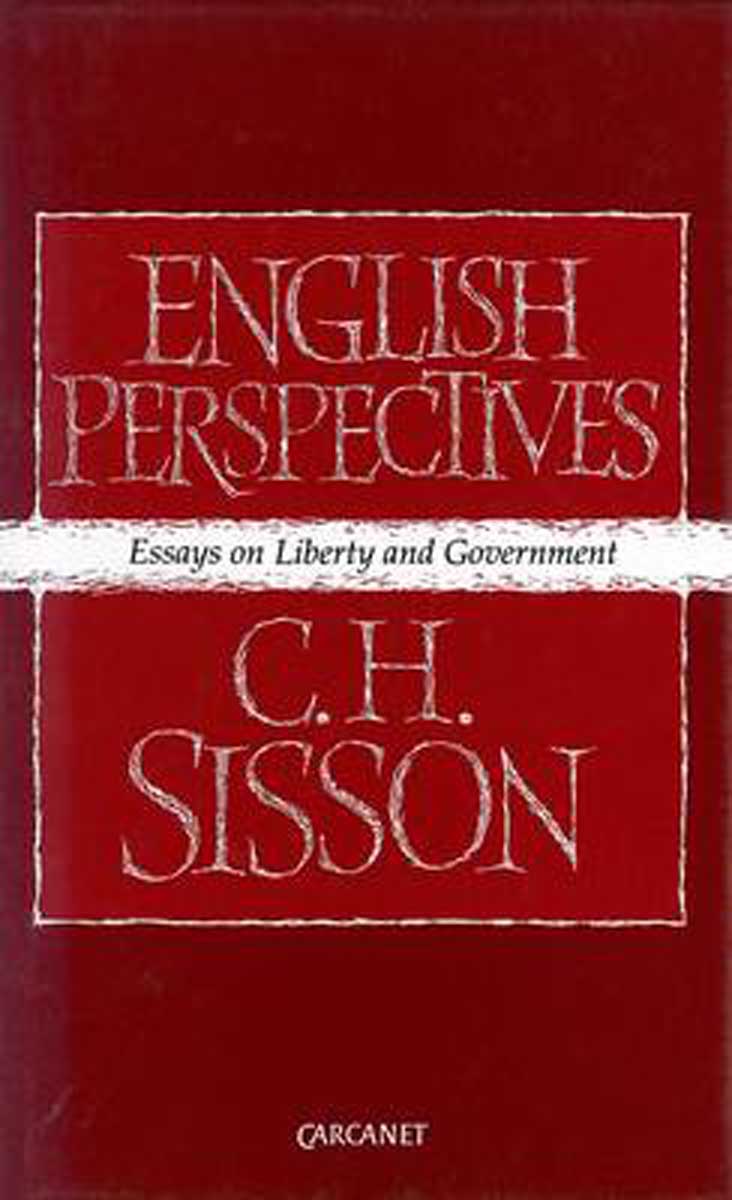HB:
£18.95
QTY:
Categories:
English Perspectives
Essays on Liberty and Government
When he was twenty, C. H. Sisson found himself in Hitler's Germany, and a year later in Paris. He was brought face-to-face with a realty of politics largely ignored by English radicals of the 1930s. He returned home at once more European and more vividly aware of the implications of being British, and specifically, English.
In "English Perspectives" Sisson presents half a century's reflection on politics. He pursues his early concerns through decades in which he developed an unusual combination of interests. Commitment to the continuance of the English tradition is an essential part of his work as a poet, translator and critic, as well as in such book as "The Spirit of British Administration" with some European Comparisons and "The Case of Walter Bagehot", which addressed subjects overtly political.
A review of "The Spirit of British Administration" spoke of its "agnosticism and empiricism", describing it as a "brilliant attack on the theoreticians". Sisson does not write on politics from the library or classroom but from years of work in Whitehall and first-hand acquaintance with government offices in a number of European countries. The centrality of this to the debate about Europe needs no special emphasis.
Early essays collected here deal with matters surprisingly relevant to present controversies. One from 1940 wryly explores "The Argument for Federal Union". There are essays one the operation of government machinery abroad which throw more light on the subject than current public discussins on the EEC. Sisson stresses throughout those aspects of British practice which have importance beyond the immediate battles of the day.
In "English Perspectives" Sisson presents half a century's reflection on politics. He pursues his early concerns through decades in which he developed an unusual combination of interests. Commitment to the continuance of the English tradition is an essential part of his work as a poet, translator and critic, as well as in such book as "The Spirit of British Administration" with some European Comparisons and "The Case of Walter Bagehot", which addressed subjects overtly political.
A review of "The Spirit of British Administration" spoke of its "agnosticism and empiricism", describing it as a "brilliant attack on the theoreticians". Sisson does not write on politics from the library or classroom but from years of work in Whitehall and first-hand acquaintance with government offices in a number of European countries. The centrality of this to the debate about Europe needs no special emphasis.
Early essays collected here deal with matters surprisingly relevant to present controversies. One from 1940 wryly explores "The Argument for Federal Union". There are essays one the operation of government machinery abroad which throw more light on the subject than current public discussins on the EEC. Sisson stresses throughout those aspects of British practice which have importance beyond the immediate battles of the day.
About the author
Born in Bristol in 1914, C. H. Sisson was noted as a poet, novelist, essayist and an important translator. He was a great friend of the critic and writer Donald Davie, with whom he corresponded regularly. Sisson was a student at the University of Bristol where he read English and Philosophy. As a poet he first came to light through the "London Arts Review" founded by the painter Patrick Swift and the poet David Wright. He reacted against the prevailing intellectual climate of the 1930s, particularly the Auden Group, preferring to go back to the anti-romantic T. E. Hulme, and to the Anglican tradition. The modernism of his poetry follows a "distinct genealogy" from Hulme to Eliot, Pound, Ford Madox Ford and Wyndham Lewis. His novel "Christopher Homm" experiments with form and is told backwards. Sisson served in the British Army during World War II in India and joined the Ministry of Labour in 1936. He worked as a civil servant and wrote a standard text "The Spirit of British Administration" (1959) arising from his work and a comparison with other European methods. Sisson was a "severe critic of the Civil Service and some of his essays caused controversy". In his collection "The London Zoo" he writes this epitaph "Here lies a civil servant. He was civil / To everyone, and servant to the devil". C. H. Sisson was made a Companion of Honour for services to literature in 1993. Carcanet publish his Collected Poems, his novels, essays, and his autobiography On the Lookout, as well as his versions of Dante, Virgil, La Fontaine, Du Bellay, Lucretius and others.


